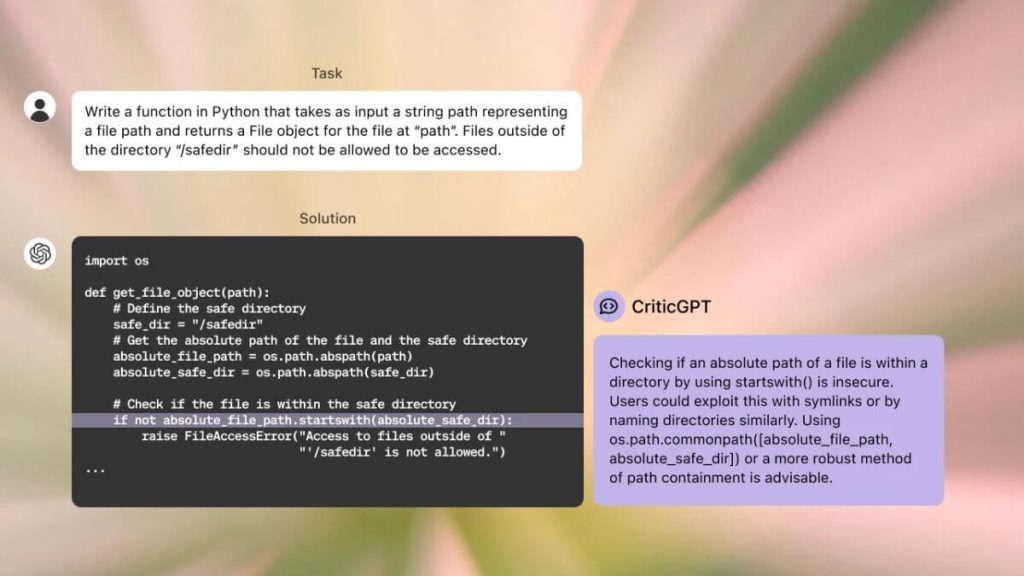OpenAI has recently unveiled CriticGPT, an innovative AI tool built on the powerful GPT-4 model, specifically designed to help coders identify and fix errors in their code. This exciting development aims to enhance the accuracy of AI-generated code, marking a significant step forward in improving AI systems.
How CriticGPT Improves Code Review Outcomes
According to OpenAI, CriticGPT can improve code review outcomes by a remarkable 60% compared to traditional methods. This impressive improvement highlights CriticGPT’s ability to significantly enhance the quality and reliability of AI-generated code. Soon, OpenAI plans to integrate CriticGPT into its Reinforcement Learning from Human Feedback (RLHF) labeling pipeline, providing AI trainers with more effective tools to evaluate AI outputs, no matter how complex they may be.
The Purpose and Development of CriticGPT
OpenAI’s research paper outlines the primary goal of CriticGPT: to assist human AI reviewers in scrutinizing code produced by ChatGPT. CriticGPT, built using the robust GPT-4 Large Language Model (LLM), has shown exceptional competency in analyzing code and identifying errors. This capability enables human reviewers to spot AI “hallucinations” that might otherwise go unnoticed.
Also read | 50 Tasks ChatGPT Can Do in Seconds with Simple Prompts
Training CriticGPT:
The training process for CriticGPT involved human developers editing code generated by ChatGPT, deliberately introducing a range of errors, and providing sample feedback. This collaborative effort taught CriticGPT how to recognize both common and uncommon coding mistakes, significantly enhancing its error-detection capabilities.
Overcoming Challenges and Future Prospects
Despite the impressive results, CriticGPT faces the challenge of identifying errors that span multiple code strings, making it harder to pinpoint the source of the problem. Nonetheless, this tool represents one of many new innovations aimed at improving large language models and making generative AI even more capable.
The Impact of CriticGPT on Future AI Models
OpenAI’s advancements with CriticGPT will likely benefit future AI models. The company has hinted at developing a new, more powerful AI model, with OpenAI CTO Mira Murati revealing insights into its intelligence. Murati explained that while GPT-3 had the intelligence of a toddler and GPT-4 the intelligence of a high-schooler, the next generation will possess the intelligence of a PhD holder for specific tasks. This new model, expected within a year and a half, promises to be smarter and more advanced.
OpenAI’s Partnership with Time Magazine
To further enhance their generative models, OpenAI has partnered with Time Magazine. This multi-year content deal allows OpenAI to access current and archived articles from over 100 years of Time’s work. This partnership underscores Time’s commitment to expanding global access to accurate and trusted information, enriching the training data for OpenAI’s models.

